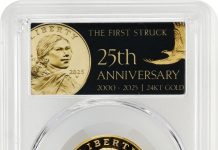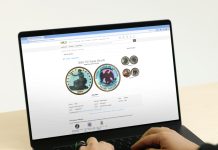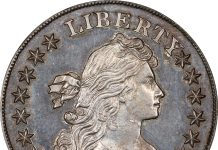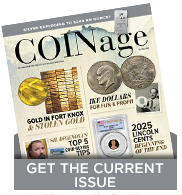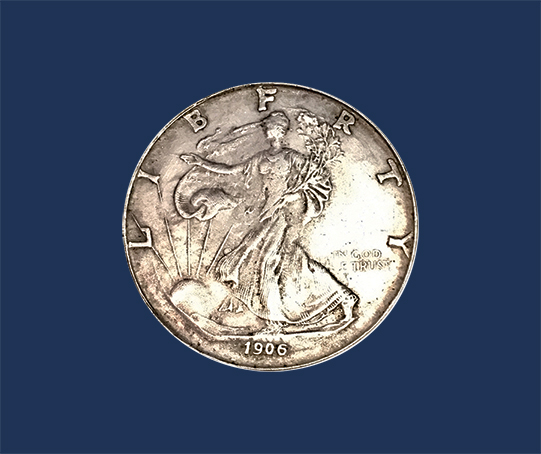
By Donn Pearlman
Literally hundreds of thousands of counterfeit coins are coming into the United States from overseas, most of them reportedly manufactured with impunity in China. Some are intercepted by law enforcement agencies, but enough are reaching the marketplace that a coalition of dealers and collectors has ramped up the fight against fakes.

Alarmingly, the counterfeiters are not just striking bogus coins; they’re making and shipping fake ingots and fake third-party grading service encapsulation holders.
The Anti-Counterfeiting Educational Foundation, a nonprofit corporation that oversees the Anti-Counterfeiting Task Force, is on the front lines vigorously combating the problems. Award-winning former numismatic editor Beth Deisher is ACEF Director of Anti-Counterfeiting and coordinates more than 90 volunteer experts who assist law enforcement agencies.
The Task Force has successfully worked with Homeland Security and the Customs and Border Protection Service on more than 30 various cases. As an example of the potential scale of counterfeit coins, consider the case of an admitted crook in New Jersey.
Deisher revealed: “Counterfeit items were seized from his home and packages addressed to him containing counterfeits seized by the U.S. Customs and Border Protection Service. Had they been genuine, these counterfeits would have a current market value of more than $46 million.”
Some fakes are astonishingly deceptive. Some are downright laughable.
Earlier this year, I saw counterfeit U.S. and Chinese coins openly offered in a Beijing, China market. These were poorly made, but perhaps could easily fool an unknowledgeable buyer.
One of those fakes (pictured above) was a “1906 Walking Liberty half dollar.” Of course, genuine Walkers were not minted until 1916. A shop worker inaccurately claimed, “It’s silver.”
It wasn’t real. It wasn’t silver. But it was yet another example of unlawful efforts to fool buyers.
So, what do you do? First, consider supporting the ACEF’s crucial work. Visit their website, www.ACEFonline.org, to learn about that work and how you can assist with even a modest donation.
Second, be a smart buyer. “The best protection is to use common sense when purchasing precious metals coins and bars. If the price is too good to be true — significantly below the current world market price for the precious metal – it’s probably fake,” advises Deisher.
“Deal with a trusted seller. There’s a wise saying in the world of coins” ‘If you don’t know your coins, know your dealer.’ Check on the credentials of the individual or firm from whom you buy coins and precious metals bars,” she counsels.
“The most basic rule is to know what the real coins look like. High-quality images are usually available online.”
That’s genuine advice from a counterfeit-combating professional.


